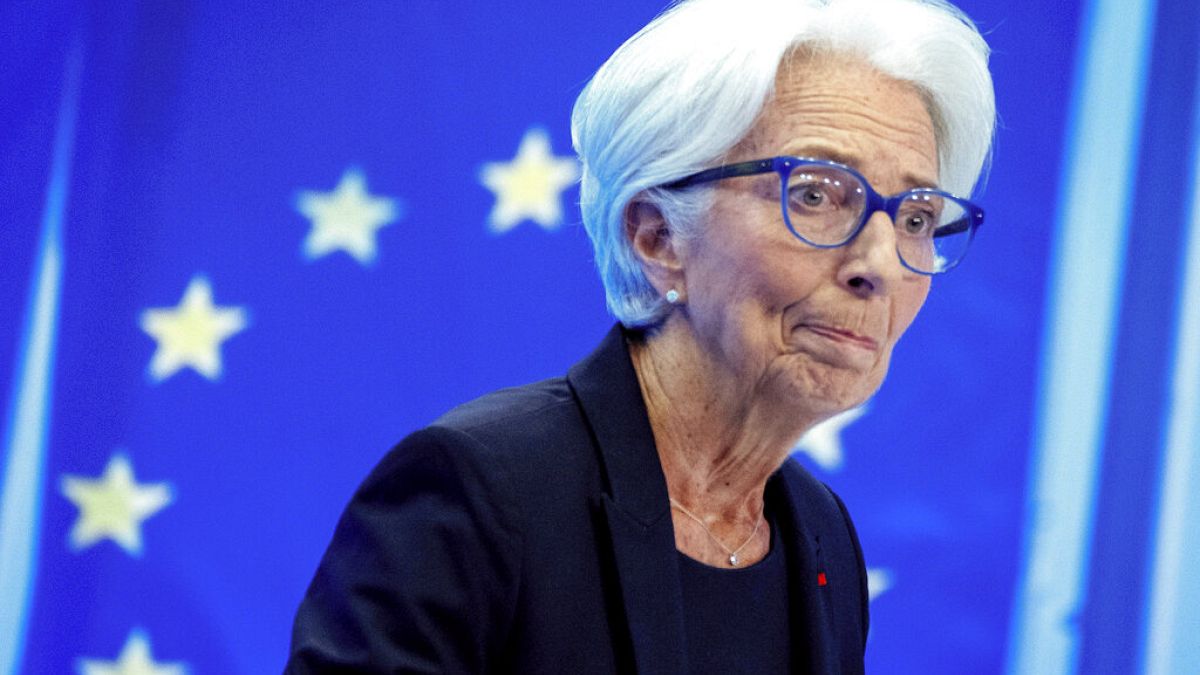Here's a look at the top stories from Europe this week.
Here's a look at the top stories from around Europe this past week.
The European Central Bank (ECB) hiked interest rates by a record three-quarters of a point on Thursday, in a bid to contain the inflationary fallout from Russia's invasion of Ukraine and the ensuing energy crisis.
The move takes the benchmark rate for the 19 eurozone countries to 0.75%.
It follows the ECB's first hike since 2011 back in July, when rates were increased to zero after years in negative territory.
“This major step frontloads the transition from the prevailing, highly accommodative level of policy rates towards levels that will ensure the timely return of inflation to our 2% medium-term target," Christine Lagarde, ECB President said on Thursday.
"Based on our current assessment, over the next several meetings we expect to raise interest rates further to dampen demand and guard against the risk of a persistent upward shift in inflation expectations."
However, the hike could exacerbate an already looming recession, according to some experts.
Decades-high inflation is already taking its toll, with recent surveys suggesting that business activity fell in August for the second straight month.
At a moment when the EU is scrambling to shield its citizens from exploding electricity prices, the eurozone economy could slide into recession.
Mario Centeno, member of the Governing Council of the ECB and Governor of the Bank of Portugal, did have some positive news though, telling Euronews that prices could start coming down next year.
"Inflation developments in Europe and even across the world have been the result of a sequence of shocks. As these shocks fade away, we can expect inflation also to come down. These shocks are several energy shocks before the war and after the war. Also, supply bottlenecks as a result of the pandemics," Centano said.
"We expect those to fade away in the next few quarters to improve at least. And so this is this will be good news for inflation," he said.
"Of course, we as central bankers are always concerned about second-round effects. For example, the impact that wage revisions and negotiations may have on inflation by a cycle of wage pressure on prices. So, I would say that later this year, surely in the first half of next year, we will see prices coming down."
Crunch energy meeting
The EU's energy ministers were also in Brussels, gathering to discuss emergency proposals to try and reign in skyrocketing bills.
The emergency meeting focussed on the five draft proposals unveiled earlier this week by European Commission President Ursula von der Leyen, including an EU-wide plan to introduce "mandatory" electricity savings during peak hours (usually 7 am to 10 pm) and a cap on the excess revenues made by inframarginal generators, namely power plants that use sources cheaper than gas (renewables, nuclear, coal).
A price cap on imports of Russian pipeline gas was also under discussion, which is the European Commission's preferred option, rather than a price cap on all gas imports into the EU.
"We have to take care that we will not jeopardise our security of supply situation," Kadri Simson, European Commissioner for Energy told reporters following the meeting on Friday.
"The LNG market is a global market. We are not among the three biggest LNG import regions and there is very strong competition in the LNG market and right now it is important that we can replace the decreasing Russian volumes with alternative of suppliers."
A legend dies
Moving on from inflationary and energy woes that have dominated the headlines for weeks, Buckingham Palace announced on Thursday that British monarch Queen Elizabeth II had died, bringing to an end a 70-year reign.
A statement on the royal website said the 96-year-old monarch died peacefully at Balmoral Castle in the afternoon.
Earlier the palace released an unusual statement saying doctors were concerned for her health and were keeping her under medical supervision.
Elizabeth was the UK's longest-reigning monarch. She took the throne in 1952 upon the death of her father, King George VI.
Her son now takes the throne and will be known as King Charles III.
In a statement, he said his mother's death was "a moment of the greatest sadness for me and all members of my family... her loss will be deeply felt throughout the country, the Realms and the Commonwealth, and by countless people around the world".
British Prime Minister Liz Truss described Elizabeth's death as "a huge shock to the nation and to the world. Queen Elizabeth II was the rock on which modern Britain was built".


